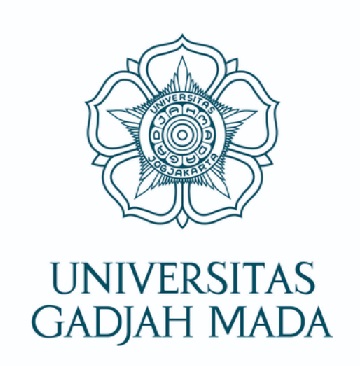Universitas Gadjah Mada

Strengths
Universitas Gadjah Mada (UGM) was the first national university created by independent Indonesia in 1949. Since its inception, UGM has continued to shape curious minds, not only in Indonesia but also in the international community. In 2018, for example, UGM welcomed around 2,300 international students from 91 countries in various fields of study. They studied at UGM alongside more than 50,000 Indonesian students.
Major, Academics
Courses available here: https://admission.ugm.ac.id/degree/international-undergraduate-program/
Campus
Universitas Gadjah Mada has 18 faculties and is located on the Bulaksumur campus in Yogyakarta. Once enrolled at UGM, each student will be provided with a wifi account and a card, which will be a compulsory identification requirement to access all the services offered. You will be able to access the libraries in each faculty and department, as well as the main library, which is equipped with IT support that gives visitors full access to over 24,000 online journals. Students also have access to all the formal and informal study areas, the refectory and mini-market in each faculty, the ‘sepeda kampus’ for local transport within the UGM, the health centre, the university hospitals, the university visits and travel service (Gamawisata), etc.
To discover
Yogyakarta is one of the most remarkable cities on the island of Java in Indonesia. Yogyakarta is not only considered an important centre of classical Javanese culture, but also a booming modern city and a centre of education in Indonesia. The city is known as a centre of classical Javanese art and traditional culture. Yogyakarta is famous for its goldsmithing, particularly silver work. The goldsmiths’ district is Kota Gede, in the south-east of the city. Take a stroll through the streets of Kota Gede and you’ll see the beautiful houses built by the families who became wealthy from working with silver. The temples of Borbodur and Prambanan are among the most visited cultural sites in Indonesia and are listed as a UNESCO World Heritage Site. Jalan Malioboro is Yogyakarta’s central thoroughfare, lined with shops and restaurants of all kinds, comparable to the Champs-Elysées in France. Yogyakarta is also a major university centre and a royal capital with a palace better known as the ‘Kraton’. Like the Vatican, this palace is a city within a city. The heart of the palace remains the home of the sultan and his family. Beyond this intimate sanctuary, the Kraton is a public place where dance is taught and performed, and festivals are very common. At night, Yogyakarta can dazzle you. In the evening, the main thoroughfare (Jalan Malioboro) becomes the scene of an exotic street fair.
Good to know
The cost of living in Yogyakarta is relatively lower than in other major Indonesian cities. Allow around IDR 1,500,000 – 2,500,000 per month (USD 100 – 200 per month) for meals, clothing and daily expenses, excluding accommodation. There are many forms of public transport, such as pedicabs, horse carts, ojeks (cheap two-wheeled taxis), taxis and city buses. Most students use bicycles, motorbikes and buses to get around.
What's going on?
https://onlinenewspapers.com/indonesia.shtmlhttps://www.world-newspapers.com/countries/asia/indonesia
This information is provided as a guide. Please visit the partner university’s website to have exact updated information.
Eligibility
Score TOEFL: 550 ICD PGE
Documents required
CV (in English) transcript, identity document, covering letter (in English) additional documents will be requested depending on the destination
Planning
AUTUMN Orientation: a few days before the start of classes Start of classes: beginning of August End of classes and exams: end of December SPRING Orientation: a few days before the start of classes Start of classes: beginning of February End of classes and exams: end of June More information: https://admission.ugm.ac.id/non-degree/student-exchange/
Procedures
Passport valid for six months after your return date. You will need to apply for a Limited Stay Visa (VITAS). The VITAS will be converted into a limited residence permit (ITAS) once you have arrived in Indonesia. There are different types of VITAS depending on the purpose of your stay (work, research or study). For students, you will need VITAS 316 for study purposes. The university’s international department will give you more information and help you to obtain the appropriate VITAS.
https://admission.ugm.ac.id/application/visa-and-immigration/ Compulsory health insurance to be taken out in France before departure.
Accommodation
We have a dormitory available for international students, but it is not compulsory to live in our dormitory. Here is the information concerning the dormitory. The UGM Housing/Dormitory is shared between male and female students. All our dormitories are close to the UGM campus and can be reached in 5 to 10 minutes. For more details, please refer to the link here https://drive.google.com/file/d/1SJ0_WmBnUVTz4TaeBmp4Ecwy6B9S6KEn/view


